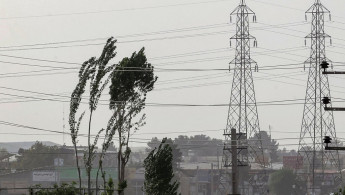State offices to begin work at daybreak to tackle Iran's electricity shortage
President Ebrahim Raisi's administration's desperate search for a solution to the summer electricity shortage has led to set working hours for governmental offices as early as 6 am.
Iran, for decades, had a robust and independent electricity infrastructure, but since 2021 it has been hit with a series of severe power outages, even in the capital Tehran.
Outdated infrastructure, lack of long-term planning, drought and enormous cryptocurrency mining projects run by the state and the Islamic Revolutionary Guard Corps (IRGC) are the leading reasons behind the shortage throughout the country.
The electricity cut over the past two summers became a crucial government issue. In small cities such as Shahre Ray and Amol, protests have erupted over the officials' failure to produce enough electricity to match rising demand.
President Raisi's ultra-conservative government, already challenged with nationwide demonstrations against the obligatory hijab law, announced on 7 April that between 5 June and 6 September, working hours at governmental offices would begin at 6 am and end at 1 pm.
Despite the government's reasoning regarding this plan's impact in reducing electricity consumption, several energy experts warned that the new strategy would create further problems for ordinary citizens.
Experts who spoke with local media asserted that the new scheme would increase the gap in coordination between the private and public sectors since working hours for private offices begin between 8 and 10 am.
Other issues noted by analysts relate to employees' productivity as they have to wake up at 5 am to be at work on time.
Moreover, it still needs to be determined if the working hours of the city buses and metro lines will also change during that period to transport the employees who do not have a car.
Raisi's administration's enactment will come into force as the government refused to start daylight saving time at the beginning of the spring, a strategy they already practised last year.
Some conservative lawmakers and members of Raisi's cabinet oppose Daylight savings time, labelling it a Western plot to disturb Muslims' accurate praying time during the day.
This accusation has caused mockery among several Iranians, who used social media platforms to ridicule the government's decision.
"These people who pretend to be religious have no brain. They suspended a 30-year-old plan [for summer daylight saving time]; instead, they have to set the beginning of working hours for state offices at 6 am," wrote one social media user, @1mashghasem, on Twitter.
Other Iranian users stressed the employees' problems with the new plan.
"6 am? To be at work at 6 am, people should leave home at 5 am, meaning they should wake up at 4 am. What is this ridiculous show? Can't you just roll clocks forward for one hour for daylight saving time?" asked @majjjidAA, another Twitter user.





 Follow the Middle East's top stories in English at The New Arab on Google News
Follow the Middle East's top stories in English at The New Arab on Google News


